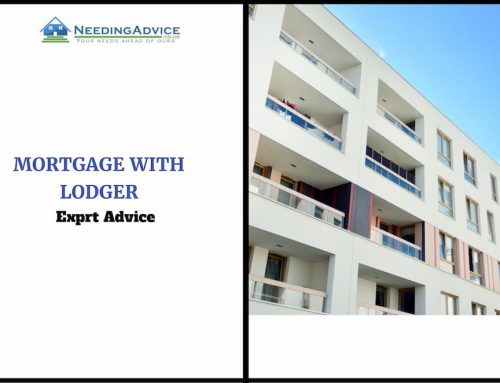What is a Guarantor Mortgage?
GuarantorA person who guarantees to repay a mortgage if the borrower ... mortgages are the mortgages in which someone else agrees to pay for your mortgage if you can’t. You may need a guarantor mortgage if you have low income, poor credit score or low savings. A mortgage lender always accepts the mortgage application in which they are sure about the timely mortgage repayments. This is the principal concern of any lender to ensure that borrowing is repaid, with interest, and on time. Where the borrower’s history or financial circumstances raise doubts about the certainty of a loan being repaid, having a guarantor could help with the mortgage approval process.
In this article on Guarantor mortgages, we will explain the possibilities of getting guarantors on mortgage loans. We will also discuss the benefits of having a guarantor mortgage. You will find the answers to most questions such as what is a guarantor mortgage, how a guarantor mortgage works, Who qualifies as a guarantor, How long does a guarantor stay on a mortgage etc.
As a whole of market broker, we will help you to get the best mortgage deals available. Whether you’re looking to buy your first property, move up the housing ladder, refinance an existing mortgage, or invest in property, we’ll make sure you get the right deal for your needs.
Post Topics
Getting a Guarantor mortgage
What is a Guarantor mortgage?
How does a guarantor mortgage work?
FAQs-
Getting a Guarantor mortgage
That is the principle behind guarantor mortgages. An approved individual may be called upon to stand as your guarantor if the lender raises any of the following reasons for doubt in your capacity to repay a loan:
- your current income does not readily support a mortgage of the size you need – the backing of a guarantor might help you get it;
- you are too young to have been able to build up a credit history from which the lender might assess your creditworthiness;
- you have a poor credit history – and a guarantor steps up to ensure that mortgage repayments will be made even if you default; or
- you have an insufficient deposit to get on the property ladder – with the backing of a guarantor, you might even secure a mortgage that requires no deposit at all.
As Which? magazine commented in an article dated August 2020 , a guarantor mortgage might offer an opening to a mortgage you would otherwise not obtain; the risk lies with the guarantor who stands to take a financial hit if you default on your mortgage repayments.
How does a guarantor mortgage work?
Guarantor mortgages go by several different names – depending on the mortgage lender – but are all based on the principle that if you default on the mortgage repayments for which you are liable, your guarantor is contractually and legally obliged to make those payments on your behalf.
The status and standing of the guarantor are clearly important considerations for the lender who will typically insist on it being a close relative of yours – most often a parent.
In addition to being a close family member, the guarantor also needs sufficient financial standing to take over your mortgage repayments if you default.
To achieve that, the lender insists that the details of your guarantor are written into the legal documents relating to your mortgage (although the guarantor won’t own any share of your home). It ensures that the guarantor is in a position to make your mortgage repayments on your behalf if you default.
Your guarantor also needs to own their own home – which is used as security against both of you defaulting on the repayments – or may be required to deposit a sum into a special savings account to be used by the lender in the event of a default.
The amount the guarantor needs to put into such a savings account is typically around 5% to 20% of the market value of your home.
As the credit reference agency Experian explains, the arrangements are designed to ensure that, in a worst-case scenario, the lender can recoup any outstanding mortgage balance from the repossession of the guarantor’s home or by seizing the savings deposit.
In addition to these risks, the guarantor also needs to be aware that if you miss any mortgage payment for which you are liable, your defaultsMissed payments on credit accounts, which can affect a borro... may also adversely affect the guarantor’s credit rating. While they remain a guarantor – for as long as the financial obligation remains – of course, the guarantor may find it more difficult raising a mortgage or other borrowing of their own.
Other costs
If you are looking to buy a home with a guarantor mortgage, don’t forget to factor in other associated costs, such as stamp dutyA tax paid by the buyer when purchasing a property., surveyor and solicitor fees etc.
Taking advice
A mortgage broker can help you find the most suitable mortgage solution for you from several mortgage types. This will be based on affordability criteria and monthly repayments, your credit history, the house price, the mortgage amount etc. They may also recommend that you and any potential guarantor family member might want to take legal advice before committing to a guarantor mortgage – the commitment is not to be taken lightly.
Even if you have the support of a guarantor, you still bear the same duties and obligations as any other mortgage borrower, and your home may still be at risk if you default on your mortgage repayments.
Bear in mind the possibility that your guarantor might die while you still have your mortgage to repay. In that event, you may be able to use their estate as security (provided you are a beneficiary, of course, and with the agreement of the executors) or your mortgage lender might ask you to arrange an alternative guarantor.
Depending on the agreement, your guarantor may relinquish his role – so that neither property nor savings are any longer required as security – once you have clearly demonstrated your capacity to fulfil the obligations of your mortgage. For example, this might be judged to have occurred once the outstanding mortgage balance has fallen below a given percentage – say, 80% – of the value of your home.
FAQs-
What is a guarantor mortgage?
A guarantor mortgage uses someone else’s home as ‘security’ – the lender can forcibly sell this property if neither the guarantor nor the borrower can keep up with the borrower’s mortgage repayments.
What happens if I’m a guarantor?
The guarantor usually has to use their own property as ‘security’ – so if neither the mortgage borrower nor the guarantor can make the repayments, then both their homes may be at risk.
Do guarantors have their credit checked?
Guarantors do have their credit checked, and most lenders will want to see a strong credit score, as they’ll be the ones responsible for making the repayments if the borrower can’t.
What are the requirements for a guarantor?
A guarantor must have a healthy credit report, to give the lender confidence in their ability to manage finances. For further details, you can contact an independent mortgage broker.
What if I can’t make the mortgage payments as a guarantor?
If you also can’t make the payments, you risk losing your own home and damaging your credit report.
Who is a mortgage guarantor?
A mortgage guarantor is someone – usually a parent, a relative or even a close friend – who will cover your mortgage repayments if you can’t pay them for any reason.
Can I get a guarantor mortgage as a first-time buyer?
Yes, you can get a guarantor mortgage as a first-time buyer, but you may need to consult a qualified mortgage broker.
Can I get a guarantor on a joint mortgage?
Yes, it depends on what type of mortgage you’re applying for. If you’re looking for a personal loan, you should speak to a qualified mortgage broker about getting a guarantor.
How much does a guarantor mortgage cost?
It depends on how much money you borrow, how long you plan to stay in the property, and whether you’re buying or renting. You can expect to pay







Leave A Comment